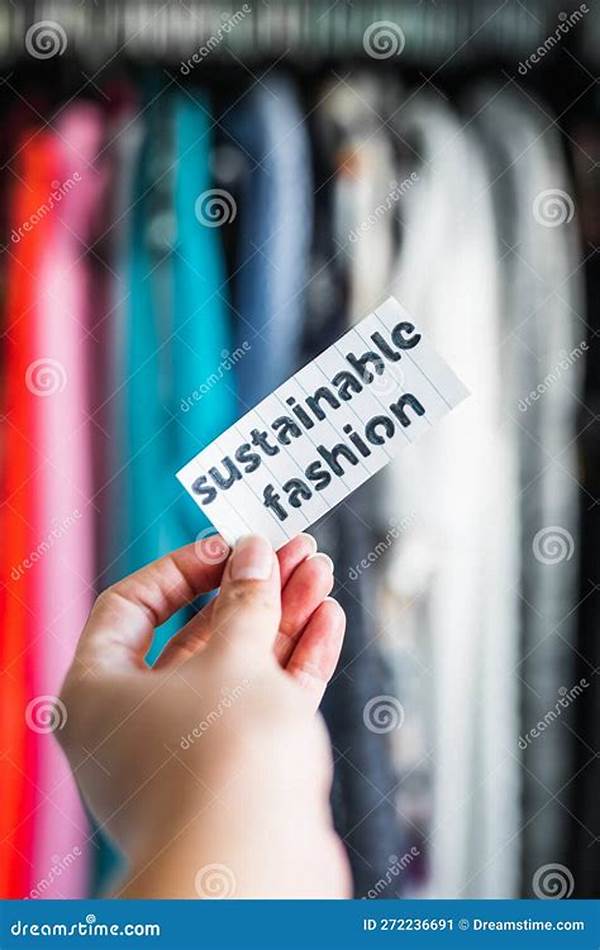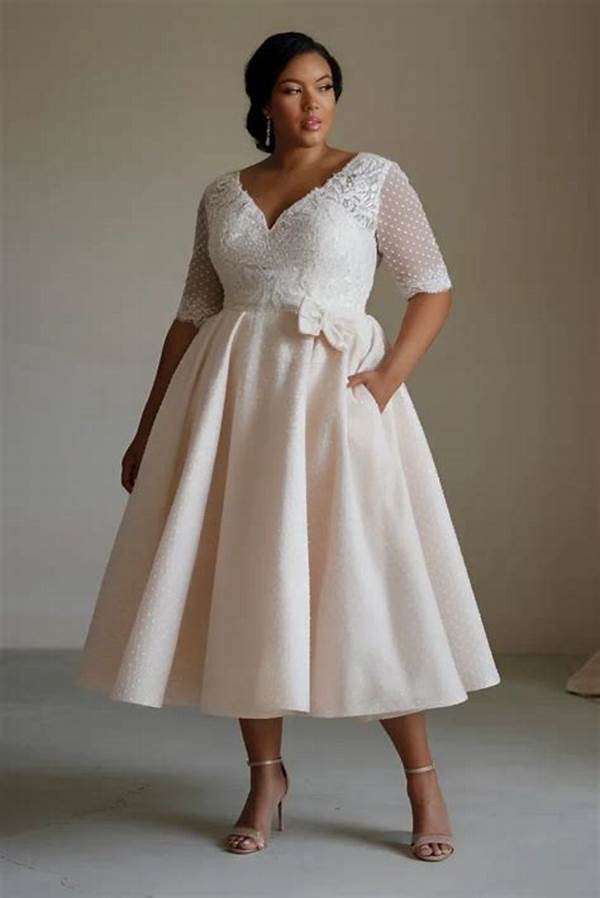In an era where consumer awareness and environmental consciousness dictate market trends, ethical practices in fashion are not just desirable—they are essential. The fashion industry, notorious for its extravagant use of resources and questionable labor practices, stands at a crossroads. By embracing ethical practices, fashion brands can lead the way in creating a more sustainable, equitable future. As consumers, we must demand integrity and transparency from the brands we support. By investing in brands that prioritize ethical practices, we not only support environmental stewardship but also ensure fair wages and safe working conditions. The shift towards ethical practices in fashion is more than a trend; it’s a movement that promises a sustainable and just future for all.
Read Now : Transform Old Wardrobe Furniture
The Importance of Ethical Practices in Fashion
Ethical practices in fashion involve a commitment to sustainability and social responsibility. By prioritizing eco-friendly processes, fair labor practices, and transparent supply chains, fashion companies can reduce their environmental impact and improve the lives of workers. Consumers play a crucial role in this paradigm shift, as their purchasing choices dictate which practices are rewarded and how the industry evolves.
Ethical practices in fashion ensure that raw materials are sourced sustainably, reducing harm to the environment and protecting biodiversity. This involves using organic materials, minimizing waste, and utilizing renewable energy. By supporting brands that champion these practices, consumers can help drive positive change throughout the industry.
Moreover, ethical practices in fashion extend to fair labor practices. This means providing fair wages, safe working conditions, and respecting workers’ rights. Brands that adhere to these principles contribute to the well-being of their employees and foster a more equitable society. As global citizens, we have the power to influence these outcomes through our purchasing decisions.
Why We Should Care About Ethical Practices in Fashion
1. Ethical practices in fashion foster sustainable development by promoting eco-friendly materials and technologies.
2. They empower workers, ensuring they receive fair compensation and work in safe environments.
3. These practices help conserve natural resources and reduce waste through innovative production methods.
4. Ethical fashion brands invest in communities, offering training and opportunities for local populations.
5. By supporting ethical practices, consumers become advocates for social justice, environmental protection, and economic fairness.
How Ethical Practices in Fashion Transform Lives
The shift towards ethical practices in fashion has the potential to transform lives and communities worldwide. By prioritizing fair wages and improving working conditions, fashion brands can uplift communities, providing opportunities for growth and development. This transformation extends beyond individual lives, influencing entire economies and leading to more stable and prosperous societies.
Furthermore, ethical practices in fashion help mitigate environmental damage caused by traditional manufacturing methods. By reducing carbon footprints, minimizing water usage, and eliminating harmful chemicals, ethical fashion brands contribute to a healthier planet. This shift not only benefits the environment but also ensures a more sustainable future for generations to come.
Ultimately, ethical practices in fashion offer a vision of a more equitable and sustainable world. By holding brands accountable and making conscious purchasing decisions, consumers can drive the industry towards practices that respect both people and the planet.
The Road to Ethical Practices in Fashion
1. Evaluate and support brands committed to sustainable and ethical practices.
2. Advocate for transparency in supply chains and manufacturing processes.
3. Educate others on the importance and impact of ethical practices in fashion.
4. Participate in industry discussions to promote innovation and accountability.
5. Demand that companies take responsibility for their environmental and social impacts.
Read Now : Modest Fashion Layering Ideas
6. Mobilize communities to push for stricter regulations and standards within the fashion industry.
7. Inspire a culture of conscious consumerism that values quality and ethics over quantity.
8. Encourage fashion education programs focused on sustainability and responsibility.
9. Celebrate brands leading the way in ethical fashion through awards and recognition.
10. Embrace a personal commitment to ethical fashion through thoughtful purchasing decisions.
Ethical Practices in Fashion: A Pathway to Global Change
Ethical practices in fashion pave the way for significant global change, urging us to reconsider the impact of our clothing choices. By advocating for ethical practices, we engage in proactive steps that address climate change, reduce inequality, and enhance global health outcomes. This approach fosters resilience within the industry, empowering both producers and consumers to demand better practices.
The transformative potential of ethical practices in fashion lies in their ability to reshape mindsets and drive systemic change. By setting new standards for transparency, fairness, and sustainability, we challenge traditional models that prioritize profit over people and the planet. In doing so, we create an industry that upholds the values of respect and responsibility, benefiting all stakeholders involved.
As the fashion industry embraces ethical practices, we are reminded of our capacity to influence positive change. Through collective action, innovation, and commitment to ethical standards, we have the power to redefine the future of fashion—making it sustainable, just, and reflective of our shared values. By choosing ethical practices, we invest in a better tomorrow for all.
A Vision for Ethical Practices in Fashion
The transition to ethical practices in fashion requires a concerted effort from all stakeholders. Brands, consumers, and policymakers must work together to create a framework that supports sustainable growth and social responsibility. By prioritizing transparency, accountability, and innovation, we can ensure that the fashion industry becomes a force for good, positively influencing the world.
A key aspect of this vision is education. By incorporating sustainability and ethics into fashion curriculums, we prepare the next generation of leaders to champion these values. Additionally, consumer awareness campaigns can empower shoppers to make informed choices, fostering a culture of conscious consumerism.
By aligning interests and collaborating on solutions, the fashion industry can redefine its impact, ensuring that ethical practices become the norm rather than the exception. This vision is achievable, and together, we can forge a new path towards a sustainable and equitable future—one where fashion reflects the best of our humanity.
Conclusion: The Impact of Ethical Practices in Fashion
Ethical practices in fashion serve as a catalyst for profound positive change. They reshape the industry by promoting transparency, accountability, and responsibility. As more brands commit to ethical practices, the ripple effects are felt throughout supply chains, benefiting workers, consumers, and the environment alike.
In conclusion, the adoption of ethical practices in fashion not only addresses pressing global challenges but also ushers in a new era of creativity and innovation. By supporting brands that prioritize ethics, we align ourselves with a movement that values human dignity and environmental stewardship. Together, we can ensure that the fashion industry becomes a driver of positive change, paving the way for a better future.




